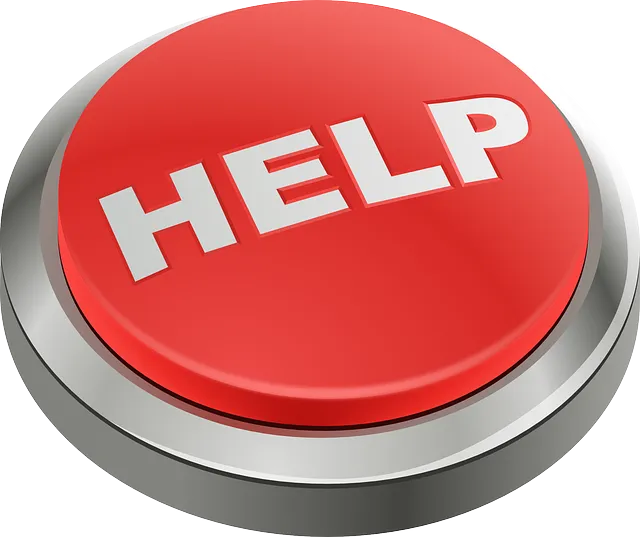Here's the thing about crowdfunding campaigns, even successful ones: They usually take a massive toll.
By the time you've launched a crowdfunding campaign, at least one with any chance of succeeding, you've already put in a great deal of work. It may have been direct work, developing or creating the project. It may have been the indirect work of community and reputation building. Either way, by the time you're ready to launch, you are INVESTED.
So it's no surprise that running a campaign is emotionally very difficult. I'm going to talk about specific emotional pitfalls and suggest ways of dealing with them. Obvious caveat: I am not a therapist. I am sharing my own experience and that of friends, colleagues and acquaintances.
The Ask

Asking for help is hard. Unless you're a psychopath, appealing to other people to help you do whatever it is your campaign is meant to do is going to be difficult. This is normal. This is natural. You are not weird for feeling this way.
Sending out a general call for help on social media and on a crowdfunding site can be quite difficult. But directly asking people for help? Now that's super hard.
Sadly, it's also essential. Direct, specific appeals are one of the most powerful ways to crowdfund, especially in the early stages of your campaign. Friends and family are the people who already know you, and hopefully believe in you.
How do you make it easier? I strongly recommend reading Amanda Palmer's book THE ART OF ASKING. Or, if you're not going to read a whole book, watch her TED talk:
I'll add that it is okay that it's hard, but that shouldn't stop you from doing it. And if you absolutely positively can't? Ask those closest to you. In each of my crowdfunding campaigns, my dad sent multiple emails to friends. This is partially because he's awesome, and partially because it's a LOT easier to ask for someone else.
The Slow Middle
Every campaign slows down. In my last crowdfunding post, I talked about strategies for moving it along during those difficult times. Now, I want to talk about dealing with the emotional cost. Every person who has ever run a crowdfunding campaign knows the feeling of hitting refresh (or just visiting the tab, if you're using a fancy site like KS which autorefreshes) and not seeing any kind of change. It's disheartening, and if you are prone to anxiety, it is very likely to trigger it.

The first step in dealing with is knowing that it's going to happen. Unless your project is, say, Pebble, or a deck of Exploding Kittens cards, it is going to happen. Numbers are your friends here (and I say this as someone with dyscalculia who hates numbers.):
About 60 percent of the money for most crowdfunding campaigns comes in during the first and last 3 days.
About 80 percent of the project that reach 20 percent funding will reach 100 percent.
Keep these numbers close to your heart during the slow times.
Also helpful is finding other shit to do. It is incredibly tempting to just wrap yourself up in the campaign and spend your days refreshing. Those dopamine hits when people DO support the project are wonderful. But it is not helpful. Other shit CAN be related to the project. Look to my previous post for ideas of stuff to do. But it doesn't HAVE to be. Live your life. See friends. Find another project to work on. Anything other than waiting for the next dopamine hit, because anytime you DON'T get it is a much less pleasant hit.
The Scary End

Unless your project is a great success (in which case, yay!) you will reach the final days with some degree of uncertainty. It may be about reaching the goal, or possibly about reaching stretch goals you really wanted to reach. If you listened to me and set your goal as low as possible, you may want more. This is where you have to reconcile two seemingly contradictory facts:
- Most projects don't reach their goal. They don't even come close.
and - Amazing stuff can happen in the final days
It's easy to look at all the successful crowdfunding projects and think a failure to reach the goal is a personal failure, because look at all those other projects that made it. But remember that 20 percent thing from before? About half of all projects launched on kickstarter never reach that. 419,536 projects have completed on KS. Of those, 206,534 raise between 0-20 percent. 53,674 of THOSE raise 0 percent. Crowdfunding is HARD, y'all.
The flip side is the potential for amazing. The most amazing thing to happen in a project I ran (AKA The Gaiman Miracle) is still subject to a future post, so let's talk about the second most amazing. A group of friends and I were running a campaign for a friend, whose bookstore was in danger of closing. The campaign was sluggish, and we reached the final day at around 50 percent funded. That is, as they say, not the ideal.
However, I had managed to get an editor acquaintance interested in the story, and the piece his writer submitted was published on the last day. In the early afternoon, a massive support came in, with no reward asked for. And then... then things went bonkers. The project didn't just fund, it funded with over 110 percent.
The ends of campaigns have a wild energy sometimes. So while staying aware of the potential of failure, be aware that amazing can also happen.
Failure Isn't Always The End

One of the projects I mention a lot is The Coolest Cooler. It is the second most funded project in KS history.
It is also a re-do of a failed project. The First Coolest Cooler was more expensive, and had a higher goal of $125,000. It made over $100,000 and still failed. The second had a nicer design, they lowered the goal to $50,000 and they removed the portable grill to make it cheaper. It raised $13,285,226.
So keep this in mind: Even if the worst happens, and your project fails, you can learn from that, and apply those lessons to the next iteration.
One Last Thing
My final, overarching piece of advice is this: Don't be afraid to ask friends and family for emotional help, in addition to asking for financial support of the project. Try and diversify the people you're calling on for help, as you don't want to put the entire load of supporting you through a difficult time on one person, but do talk things through with your loved ones.
Coolest Cooler Image credit: Kickstarter
All Other Images: Pixabay